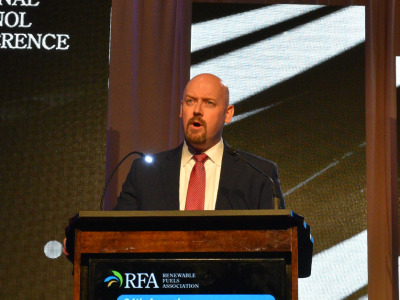After making their case to the Supreme Court, biofuel industry officials are expressing confidence that the justices will agree to restrict the issuance of small refinery exemptions.
The case involves a ruling issued more than a year ago by the 10th U.S. Circuit Court of Appeals, which struck down three exemptions for the Renewable Fuel Standard and also created a new rationale for the Environmental Protection Agency to follow in considering future waivers.
According to the 10th Circuit ruling, exemptions must be continuous and cannot be issued again once the waivers have lapsed.
Small refineries with a production capacity of fewer than 75,000 barrels per day may request an exemption if they can prove RFS compliance would cause them undue economic hardship.
The question at issue in the SCOTUS case is whether a small refinery needs to receive uninterrupted, continuous hardship exemptions for every year since 2011 to qualify for a hardship exemption under the Renewable Fuel Standard.
The Renewable Fuels Association, National Corn Growers Association, American Coalition for Ethanol and National Farmers Union, who are respondents in the case, argue it does need to be continuous, siding with the 10th Circuit decision. Refiners are arguing the statute clearly states an exemption may be granted “at any time.”
Justices hit refiner and biofuel lawyers’ arguments hard Tuesday, pressing them on their interpretations of what the word "extension" means in the law.
Of the justices, Stephen Breyer seemed to be the toughest on biofuels, raising the concern that the market tends to change from year to year and Congress may not have foreseen the impact of fluctuating biofuel credit prices on refiners.
"Your interpretation seems to turn (the program) into a kind of chaos," Breyer said.
But several other justices, including conservative Clarence Thomas, and liberals Elena Kagan and Sonia Sotomayor, attempted to poke holes in Peter Keisler’s argument for refiners that EPA could grant exemptions “at any time.”
Keisler pointed to an explanation from the Department of Energy in 2011, saying refiners would face inherent and disproportionate hardships that will increase as the RFS mandates grow.
“Driving those small refineries out of the market would undermine the statute’s energy independence goals, and that’s one of the reasons Congress authorized them to petition at any time,” Keisler said.
Interested in more news on farm programs, trade and rural issues? Sign up for a four-week free trial to Agri-Pulse. You’ll receive our content - absolutely free - during the trial period.
Geoff Cooper, president and CEO of the Renewable Fuels Association, said that if the court ruled in favor to uphold the 10th Circuit case, it would change how the EPA grants waivers moving forward.
If the 10th Circuit ruling is overturned, the issue will be back in the hands of the EPA. “If EPA were to follow this criteria moving forward, their hands are tied and wouldn’t be able to grant more than a few small refinery exemptions moving forward, and only in the case that those small refineries are able to demonstrate that they're experiencing disproportionate economic harm because of the RFS,” he told Agri-Pulse.
He also said refiners would have to show they could not pass along their compliance costs to their customers.
“That’s why this case has been getting so much attention, because it does have very important and broad implications for the small refinery program moving forward,” he noted.
Renewable fuel groups say exemptions destroy demand for ethanol and biodiesel, but refiners disagree and have defended the agency’s granting of them.

Geoff Cooper, RFA
In a statement to Agri-Pulse, a spokesperson for the American Fuels and Petrochemical Manufacturers said Congress knows how to write a deadline when it wants to and that the law does not support the idea that hardship exemption eligibility has a sunset date. "Within that program reality, it’s a stretch to think Congress would ever permanently rescind hardship exemption eligibility," the spokesperson said.
A lawyer who has worked with the industry for many years said that several justices seemed to entertain the idea that the 10th Circuit ruling might be wrong: "That makes sense because if the justices were comfortable with the lower court opinion, they wouldn’t likely have taken the case."
Growth Energy CEO Emily Skor said she also expects to win the case, but that "it wouldn't be devastating" for her industry if the refiners prevail.
That's because the court is only evaluating one out of the three main arguments made in the 10th Circuit ruling, she said.
The 10th Circuit also said EPA exceeded its authority in granting exemptions to refiners that did not show the RFS was the cause of disproportionate economic harm. Additionally, the appeals court concluded that EPA exceeded its authority in granting economic hardship exemptions when the agency showed refiners were recouping the costs of RFS compliance.
“So, there are other very strong reasons to continue to deny the small refinery exemptions. You’re just taking one of those arguments away,” Skor said.
Refineries have already adjusted some practices in response to the ruling, namely through an effort last year to apply for so-called "gap-year" SREs to maintain continuous exemptions. At the time, Andrew Wheeler, then EPA administrator, said there were "a number of issues" with the attempt. EPA ultimately did not approve those SREs, which dated back to 2011.
For more news, go to www.Agri-Pulse.com.


